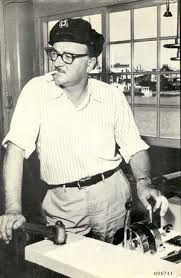THE
JOY OF STORY
John
M. Daniel’s Blog
August
27, 2016
I’ve just taken on a ghostwriting assignment. For
professional and ethical reasons I can’t tell you who hired me for this job, or
what the book is about. But ghostwriting is perhaps my favorite work, and it
pays well, too; so I’ve decided to write an essay on the subject of
ghostwriting in general: why I like the task, why it’s such hard work, the
rewards in terms of satisfaction, and the perils of failure.
I
don’t get these jobs often. I’ve been a professional editor for close to fifty
years, during which I’ve whipped hundreds of manuscripts into shape by copy
editing, line editing, and development or structural treatment. But these
chores, though satisfying work for me, don’t thrill me anywhere near as much as
creating, almost from scratch, a novel or a memoir, something with plot,
conflict, and character. I specialize in stories.
Consequently,
I’ve ghostwritten only seven books, of which five were novels of mystery and/or
suspense, one was a mainstream novel, and one was a posthumous memoir. I
consider these jobs some of my best writing, and of course I’d like to tell you
to buy them and like them, but I can’t. I’ve turned down many ghosting jobs
because they didn’t work as stories. I don’t feel qualified or inspired to
write books of straight information and advice.
Ghostwriting
is a tricky business, because my work must satisfy the client, who is
justifiably sensitive to the sound of his or her “voice.” I must spend time with the author to absorb how
they talk and what they feel strongly about. It’s best if this can happen face to face, but
I’ve also gotten to know my clients through correspondence. Usually the client
presents me with a mess of a first draft, which needs a complete overhaul. From
that first draft I can get a general sense of the book I’ve been hired to
write.
The
next step is the outline. The ghost and the client work together, back and
forth, hammering out a book outline, putting the events in order, defining
chapters, sketching out the scenes, building a narrative arc for each of the
scenes, each of the chapters, each of the “three acts,” and for the book as a
whole. Making sure the climaxes come in the right places. An outline is
essential, so that the client and the ghost can understand and agree on the
architecture of the story. This is not a story that can be thought up and
written down by the seat of one’s pants.
Then
I start writing. I send my client batches as I progress, usually about twenty
to thirty pages to start with. I expect to be paid for each batch I send. This
is a crucial moment in the relationship. If the client doesn’t like what I’m
doing, he or she can cancel the job. The client is required to pay me for work
I’ve done, but can end the relationship if it’s not what the client wants. I’ve
lost a few jobs in the early stages because my work didn’t live up to the
client’s expectations. I was sorry to lose those jobs, but glad to know early
in the game, and I’m happy that those relationships ended amicably.
Of
course if the client’s complaints are just minor quibbles or corrections that
can be dealt with easily, I’ll do that work for free. But if it turns out the
author doesn’t like the way I write, or doesn’t share my convictions about how
stories should be told, then it’s best that we part.
Memoirs
can be especially tricky, because the client may insist on complete accuracy
about every detail of his or her life. My philosophy is that a good story is
more important than absolute accuracy. I feel I should have leeway to make up
dialogue for the sake of the plot, so long as I get the point across and am
true to the characters speaking. The client may not agree, and the client is
always right. I’ll always respect the client’s wishes and try to accommodate,
but I’ve little patience for control freaks who make me guess about every
detail and then reject my work because I inadvertently changed the color of
somebody’s Chevrolet.
Mostly
it’s good. People have asked me if I didn’t resent seeing a book I wrote be
published under somebody else’s name. My answer is always, “Hey, what’s to
complain about? I’m writing a fast-moving, entertaining story and probably getting
paid more for it than I’d make in royalties if it were published with my name
on the title page.
Anyway,
here I go again, writing somebody else’s book. I like the story, I like its
“author,” and I hope this job brings us both the pleasure we both deserve for
contributing another good book to the libraries of people who share our
devotion to the Joy of Story.
§§§
Call for submissions: Your 99-Word
Stories
The
deadline for September’s 99-word story submissions is September 1. The stories
will appear on my blog post for September 10, and will stay posted for a week.
note: this 99-word story feature
is a game, not a contest. Obey the rules and I’ll include your story. I may
edit the story to make it stronger, and it’s understood that you will submit to
my editing willingly. That’s an unwritten rule.
Rules for the 99-word
story feature are as follows:
1. Your story must be 99
words long, exactly.
2. One story per writer,
per month.
3. The story must be a
story. That means it needs plot (something or somebody has to change), characters,
and conflict.
4. The story must be
inspired by the prompt I assign.
5. The deadline: the
first of the month. Stories will appear on this blog the second Saturday of the
month.
6. I will copy edit the
story. The author of the story retains all rights.
7.
Email me your story (in the body of your email, or as a Word attachment) to: jmd@danielpublishing.com
THIS
MONTH’S PROMPT FOR NEXT MONTH’S 99-WORD STORY: Write a story
inspired by the following sentence: The
Princess looked again into the mirror and said, “You’ve got to be kidding.”
§§§
Calling
all published authors—
I try to feature a guest
author the third Saturday (and week following) of each month. If you’re
interested in posting an essay on my blog—it’s also a chance to promote a
published book—email me directly at jmd@danielpublishing.com.
§§§
Thank you for visiting.
Please drop by next week.













